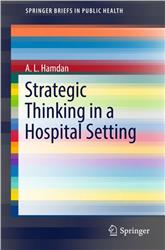Boundaryless Hospital
Rethink and Redefine Health Care Management
| Auflage | 2016 |
| Seiten | 360 p., 76 illus. |
| Verlag | Springer |
| ISBN | 9783662490105 |
| Artikel-Nr. | 550874 |
Lieferzeit ca. 5 Werktage
Produktbeschreibung
This book discusses current health care challenges and new strategies for innovative solutions in this area from an interdisciplinary perspective of health care management, business economics, and medicine. It presents the idea of a 'boundaryless hospital', a conceptual model of a patient-centric, value-based health network that overcomes typical sectorial, organizational, and geographical boundaries and offers greater efficiency and better quality outcomes for patients.
Effective health care for a growing and aging population is a major challenge for economies all over the world. New breakthroughs in medical technology and pharmaceuticals as well as digitization provide scope for more efficiency and for a better quality of health care. Novel organization forms and management concepts are key for coping with the increasing cost pressure observed in most health care systems. The contributions in this volume present innovative strategies for developing and implementing the concept of a boundaryless hospital. They highlight experiences from various countries and with different treatments.
The book project was initiated and carried out by the Center for Advanced Studies in Management (CASiM), the interdisciplinary research center of HHL Leipzig Graduate School of Management for business administration in the 21st century.
Effective health care for a growing and aging population is a major challenge for economies all over the world. New breakthroughs in medical technology and pharmaceuticals as well as digitization provide scope for more efficiency and for a better quality of health care. Novel organization forms and management concepts are key for coping with the increasing cost pressure observed in most health care systems. The contributions in this volume present innovative strategies for developing and implementing the concept of a boundaryless hospital. They highlight experiences from various countries and with different treatments.
The book project was initiated and carried out by the Center for Advanced Studies in Management (CASiM), the interdisciplinary research center of HHL Leipzig Graduate School of Management for business administration in the 21st century.

Bleiben Sie informiert!
Melden Sie sich für den frohberg.de-Newsletter an und nutzen Sie jetzt Ihre Vorteil:- Willkommens-Dankeschön: Beatmungsmaske Rescue Me
- Aktuelle Neuerscheinungen und Empfehlungen
- Exklusive Angebote und Kongress-Highlights







